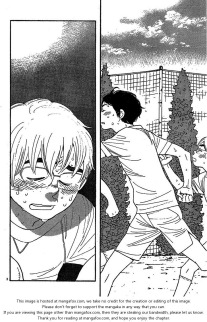 |
 |
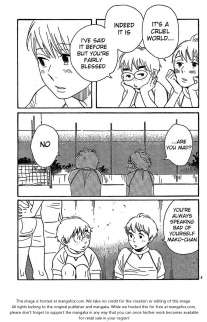 |
“Whispered Words”
Whoa – now things are definitely heating up.
I don’t know if you can technically call Hourou Musuko a “slice-of-life” – and no, I don’t want to open that can of worms – but one of the most magical things about Shimura Takako’s writing is the ability to create tremendous tension around the seemingly normal facets of daily life. The anime gave us a great example of this with the first gender-bender play episode, which could have given Another a run for its money in the suspense department. She really makes me feel the reality of these kids’ lives, and the anxiety those lives cause them.
It was inevitable that the question of physicality between Nitorin and Anna was going to arise sooner or later, but coming on the heels of another weighty chapter cements my belief that things are cranking up in a big way, generally speaking. With Nitorin sprawled out in bed exhausted (and given his schedule, he should be) Anna innocently suggests a massage. Except it’s not so innocent, and Anna has an ulterior motive – and when she gets close to the equator, it’s pretty clear that the action is spawning the desired reaction in Shuu. If Maho hadn’t walked in on them…
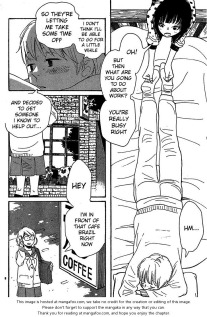 |
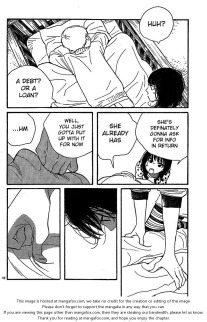 |
 |
The reality is of course that we’re talking about high-schoolers here, and this sort of thing can only be ignored for so long. Everyone’s reaction to it is interesting – after her initial shock, Maho seems almost pleased. Anna feels guilty, and Shuu – while embarrassed – doesn’t exactly deny the possibility that Maho walked in on something on its way to being something else. This being Hourou Musuko we have to have obfuscation, of course, and the next day Nitorin meets Ebina-san for lunch – almost as if he has to reaffirm he’s still the boy who wants to be a girl. As for Ebina-san, he crosses paths with the woman he’d met at a marriage meeting, potentially disastrous if she recognizes him.
This is played out against the continuing framework of Nitorin’s clock ticking, as Mako reminds us in the introductory scene when he points out that Nitorin is starting to develop some muscles. This is the second time in two chapters that Nitorin’s physical maturation has been noted by others, and with Ebina-san in the picture the message is clear – he’s about to be faced with hard choices. For Makoto, we see the same combination of envy and attraction for Shuu – he may be filling out too, but in his own mind he was never cute enough to pull off being a girl anyway. As long as Makoto continues to define himself in comparison to Shuu, he’ll never be happy.
Decisions are looming all around for Nitorin. Whether to have a physical relationship with Anna, how to deal with his increasingly masculine physicality, and how to deal with Minamoto, who refuses to gracefully accept Nitorin’s desire to end their relationship. I expect the next few chapters will continue to be very eventful.
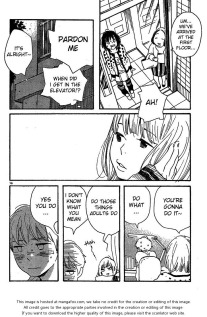 |
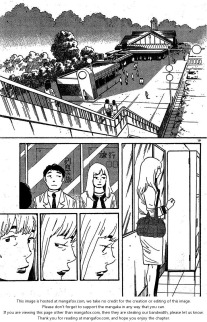 |
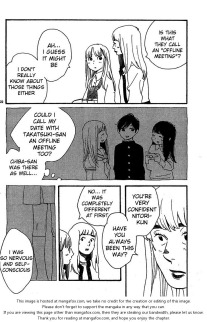 |


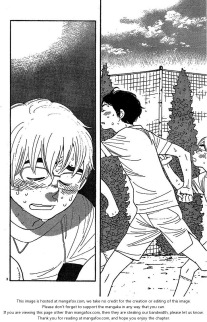

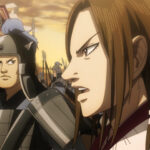
Eric J.S.
February 28, 2012 at 8:45 pmI hope the next chapters are not so eventful. If we do not get something that reflects on what has just occurred or displays some of the consequences the latest developments have, the manga will start moving too fast and we will lose that valuable exploration of childhood experiences combined with an actual narrative structure.
On a point on your style: On one hand, you do very well with explaining the subtexts behind scenes like what is going on in the heads of Anna and Nitori during the Message scene. On the other, while you mention contexts in passing, I think it would be valuable to explore the context issues of what are friends, families, and society telling our cast. For instance, Mako's parents find it obviously good and desirable for Mako to be filling out physically, and this is reflective of the larger heteronormitive system that is so ostracizing and uncomfortable for those who live being transgender.
I guess there are reasons to avoid this because it ends up becoming socially and politically progressive sounding and not everyone wants to rock the boat. I can imagine an anime-manga bloggers that I know might explore the angle of a manga which is a commentary of society and coming to opinion about that. Shimura Takako writes stories that not only include experiences of those who have been systematically ignored, undermined, or lied about but also criticizing how in families, schools, and other social situations there are many predominant gender assumptions. I think Shimura does not avoid being this political and socially progressive despite the apparent low marketability of progressive manga is because someone has to write these kind of stories or the silence will perpetuate.
Luckily, Hourou Musuko as a manga is doing very well, relatively speaking. The anime did not do very well in Japan, but I hope its international numbers are better.
admin
February 28, 2012 at 9:12 pmI think you're making an unwarranted assumption about my reluctance to "rock the boat. I'm not coming into this series with a political agenda, and that's not what I'm going to focus on exclusively. But if you read my many posts on the TV series, I think you'll find there's plenty of context in there. The manga is very definitely about transgendered kids, and it approaches the subject in a mature and sensitive way. It's also about each individual character as an individual, not as an identity or an agenda, and that universality is what elevates it above simply advocacy to art. I choose not to ignore one side of the series in favor of the other, but I've found that any acknowledgement of the special nature of the series to too much for some (I've received some extremely vitriolic hate mail from people who think I shouldn't cover this series at all) and anything less than total focus on the transgender issue is not enough for others. As usual, you can't please everybody – so I write what I choose to, and try not to worry about extremists on either side.
Eric J.S.
February 29, 2012 at 1:29 amI am sorry if it came off as if I was saying that you did not want to rock the boat. I only meant to say lots of people avoid mixing anime and politics, which I come to from seeing lots of reviews of the 2011 winter season. I actually glad you cover this series so carefully and only intended to mention that at least in this chapter summary I thought the filling out dynamic was reflective of one of those common growing up things which are colored so heavily in heteronormative values and thought that it is important to explore that as an important part of the chapter. This review seemed more of a first-person approach while I tend to like the combination of third (societal) and first (main character) views express in the text. This is only a preference, and you do not need to change your style to fit my desires.
I agree that I should have given more time to my criticism because I think of you as an honest and thoughtful reviewer, especially of this series. I also agree you cannot please everyone and that is why I differ on how I would present the series. I tend to see Shimura putting in situations here and there which are more or less a representation of how people see gender stereotypically and I think that is an important part of this series.
Again, I am sorry if my comment came of as a high criticism (moral absolutist) of your style rather than a low criticism (my preference). I was my fault for phrasing it in terms of "it would be valuable" which is an absolutist way of telling you what is better. While there are things that are better than others, in the case of writing a blog post, the more your content and style reflects the goals of the blogger the better, and all I can do is say if you are actually achieving those goals if those goals would involve anything I could possibility know about.
I ramble, blah…
admin
February 29, 2012 at 3:43 amI took no offense – just clarifying my position. When politics (gender and otherwise) plays a prominent role in an anime or manga, I discuss it. But that's not my primary focus here – rest assured I have very strong political beliefs and they're important to me, but I don't see it as my role to use an anime blog as a platform to impose them. As always, it's a case by case basis.
Nadavu
March 1, 2012 at 12:11 amI got the impression that Shuu was not into doing Ecchi stuff with Anna at all. Even with that final joint realization that a physical experience is practically unavoidable, he seemed almost depressed about it. It was always my opinion that Shuu's fascination with Anna has to do more with his desire to be like her than a desire to be intimate with her. When I think about it, the only character I felt Shuu had genuine reciprocal sexual tension with was, well, Doi. If Shuu is bothered by reminders of his chromosome Y identity, then doing the Ecchi with a girl should be pretty high on the list of things he'd like to avoid..
admin
March 1, 2012 at 12:57 amThat wasn't at all how I read that scene, but it's subject to interpretation I guess. I think Shuu very much responded to that, and I don't think he was so much depressed about the notion of doing more as he was scared about it, as any inexperienced boy would be. I'd also say we've seen a suggestion in the past that he was physically attracted to Yoshino.
Eric J.S.
March 1, 2012 at 9:08 amI got a sense that Shuu was bothered by the impending doom that is his male physicalism. That is why he contemplates about how sooner or later he is going to be doing it.